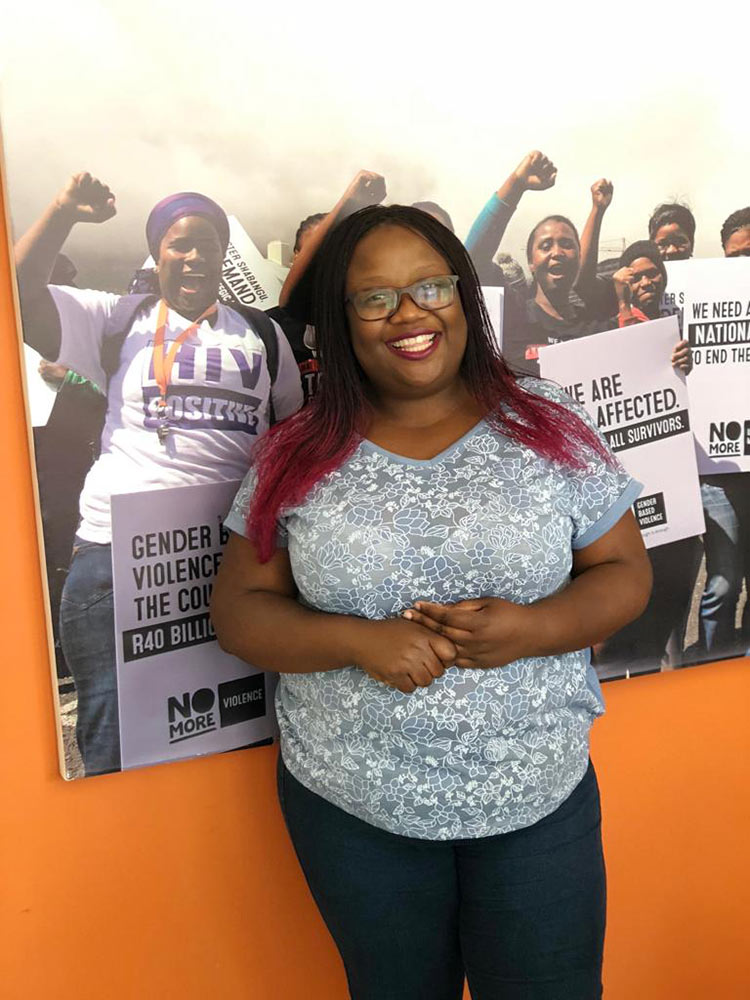Here’s a quick Q+A with Josephine Mukwendi (Mukwendi Josephine), co-ordinator of the annual MenEngage Africa Training Institute (MATI) short course that is currently taking place at the University of Pretoria, to give us some more details on what this training is all about:
1. The MATI course has been running for a couple of years now. Give us the background behind its introduction and what need it’s serving…
The vision for MATI has always been to build a dynamic, vocal and visible network of leaders and gender justice advocates that will drive the gender equality and human rights agenda on the African continent. The first step towards realising this vision is through the implementation of training courses that provide cutting-edge and up-to-date information on gender, public health and human rights in order to expand the knowledge and skills of activists in Africa.
While the importance of engaging men and boys in gender justice work has been widely recognised, most initiatives to engage them tend to be small-scale and short-term. In order to transform pervasive gender inequalities within Africa, a scaling-up and widening in scope of the programmes and models already known to be effective is imperative. The MenEngage Africa Training Initiative (MATI) provides an example of a programme designed to address this gap.
2. Over the years the course has had different focal issues. What are the key learning areas for MATI 2018 – and why?
Although the course has a strong theoretical emphasis, components of the course will focus on equipping participants with practical advocacy skills for tackling gender inequality. This will be done through a mix of didactic and experiential work.
We have learnt the importance of capacitating our MEA members on very vital issues that relate to the work that we do, including international human rights as it relates to gender equality; key feminist concepts around human rights and gender in development theories; the overview on why engaging men for gender equality and debates around this approach; gender, culture, tradition and religion; case studies of promising practices on engaging men for gender equality globally; gender-based violence prevention; sexual and reproductive health and rights and HIV and AIDS; LGBTQI rights; and parenthood and gender equality.
These are all issues that our evolving world is grappling with and they are important for development and upholding and protecting human rights and equality.
3. What is the background of the participants and where are they coming from?
The Men Engage Training Initiative 2018 course is aimed at MenEngage Africa practitioners from the MenEngage Africa Alliance working in areas relating to gender, development, health and human rights.
Participants are from the 21 MEA countries which are Swaziland, Botswana ,Zambia, Namibia, Lesotho, Mozambique, Malawi, DRC, Ethiopia, Tanzania, Kenya, Sierra Leone, Nigeria, Cameroon, Liberia, Madagascar, Mali, Uganda, Togo, Rwanda, Burundi… and are all working on areas relating to gender, development, health and human rights.
4. What are your expectations of the participants after completing the training?
Our expectation is that at the end of the course, participants will have significantly improved their knowledge in the areas of feminist approaches to gender and development, the links between masculinities and gender justice and promising practices in engaging men and boys for gender equality within a feminist framework.
5. How do you support them going forward to help ensure that they implement what they have learned from MATI?
After completing the 2018 MATI course, the participants would have acquired skills and they will be supported to replicate the course at a country level for the members of individual country networks. They will be supported in the implementation of this course in their own countries.

